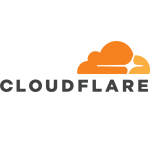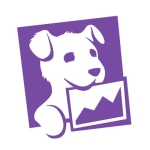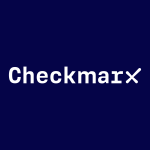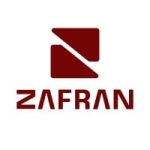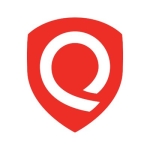What is our primary use case?
I lead and manage our vulnerability management and threat intelligence program so relying on having quick visibility, coverage, comprehensiveness, and depth is an absolute benefit; Wiz agentless deployment and scaling give us that quick use CVE-based vulnerability scanning, detection, continuous monitoring, threat intelligence, and risk prioritization with little to no downtime or impact to availability. Lastly, the CSPM, threat-intelligence, and dashboard capability within Wiz gives leadership quick and efficient reporting on our overall risk in the cloud.
How has it helped my organization?
I believe the genius of Wiz is that, as we move towards a more zero-trust approach to cybersecurity, we can avoid using agents, which can be intrusive and difficult to manage. Furthermore, granting an agent full read rights access to our endpoint is not always the most secure, least privileged approach. I appreciate how Wiz can take a snapshot, scan it, and deliver results without affecting our workloads. Working with Wiz is great because it eliminates the need for staging and production environments. When we can't pick a snapshot-like reproduction environment right away, it does not have any impact.
We went from 1,000 to 10,000 employees after merging with a large company and purchasing another. Prior to this, it was like the Wild West. With Wiz, we were able to set up quickly and have visibility into our cloud workloads and environment. This has been incredibly helpful in reducing our attack surface and allowing us to prioritize risks. Wiz significantly lowered our risk and caused little to no disruption which is quite amazing.
It is extremely important for our organization to have visibility into our risk detection with a contextual view for prioritizing potential critical risks. When companies try to approach this single pane of glass from a risk perspective, it is essential to be able to share this information with stakeholders and non-technical people, such as the president, CFO, or other C-level personnel. I believe it is possible to share our cloud posture and risk overall within a five-minute presentation.
With the deep coverage and visibility that Wiz provides, we need more resources. It's clear that we have a lot of issues to address and we need to be careful and strategic in how we roll out solutions so that we don't overwhelm the business. Wiz has been helpful in determining our needs and getting us the resources and people we need.
Remediation is currently a manual process. Because the automation workflow within the tool is lacking, we have a remediation webinar to help. I still recommend and suggest that Wiz build it within the tool itself and not depend on manual processes. I have created an SOP to review and share findings, but it is a tedious process and can take up a lot of time. We are not yet in an optimized automated state and the tool and procedure are not there yet. However, Wiz does help and I have set up projects to help with organization and remediation workflow. The security personnel I work with have been pleased with the results, as I can provide a link to the issue and we can review it together. I usually have biweekly remediation calls and internal SLAs to track the ticket creation of the finding to when it is remediated. I find it useful to use that feature within the solution. Wiz allows us to go into the issue and assign a due date, which is very helpful. It would be great to have our own remediation board within Wiz, more like a dashboard.
What is most valuable?
There are many different features within Wiz that are valuable in their own right. I believe the best features are cloud security posture management, threat intelligence, and risk prioritization. This combination is my favorite aspect of Wiz. There are very few false positives. Wiz does an excellent job of leveraging their threat intelligence and distinguishing issues from findings to prioritize their risk. Having threat intelligence as part of our overall cloud posture management, cloud configurations, CVEs, and CWEs helps to prioritize our inherent and residual risk to the business. Wiz does not try to make actions overly complex, so even a non-technical person can take a webinar and understand the basics of how it works. The solution is very user-friendly.
I like the security graph feature, and being able to start with a dashboard. I am a fan of drilling into the dashboard, and I love how the solution handles different technologies. If we go to Wiz's inventory, they have their work, visibility, and coverage of technologies, as well as how they prioritize external exposures, cloud entitlements, containers, overall vulnerabilities, malware findings, and so on.
I really appreciate the visibility and the way the security graph lays out the risks. When we join the security graph, we can get very detailed and granular information. I like how I can drill into an issue, for example, if I want to look at a critical finding. I can look up fields in my query for all the hits and interact with the security graph and those expressions easily. It's a very digital footprint, root cause analysis type of interaction. I like that element of the security graph. We can get very specific, elaborate, and add to it. Whether we just want to look at the security graph level or drill into the issue specifically, it gives us a detailed footprint of the attack. It's pretty cool.
What needs improvement?
Wiz is trying to get into File Integrity Monitoring and it would be nice to set up what they call 'alert profiles' in their dashboard. For instance, if they had a threshold of a hundred images or files within a Docker container, image, or files within a particular workload that has been deleted within one minute, this could be an Indicator of a compromise of ransomware or something else. We typically don't think of this in the cloud, but the same rules apply as they would on-premise. It would be beneficial for Wiz to expand into this space and set up alert profiles for thresholds that indicate areas of compromise.
The remediation workflow within Wiz could be improved. For example, Rapid7 has done this well with InsightVM, which they call goals, SLAs, and projects in their remediation workflow. It would be beneficial to have a remediation tab that focuses on the visibility and coverage of findings, as well as an automated remediation workflow. This would save time, as it would not require creating tickets in Jira or going to another place. If these two can be done, it will be very helpful for the user, the person administering the tool, and the developers who need to fix the findings and issues.
Buyer's Guide
Wiz
January 2026
Learn what your peers think about Wiz. Get advice and tips from experienced pros sharing their opinions. Updated: January 2026.
881,757 professionals have used our research since 2012.
For how long have I used the solution?
I have been using Wiz for almost one year. Six months of that was proof of concept, and now in my current role, four to five months.
What do I think about the stability of the solution?
We have not encountered any issues with Wiz since I have been here, and it remained stable with no downtime or changes required. I give the stability a ten out of ten.
What do I think about the scalability of the solution?
I am a great admirer of scalability. Wiz scales very well. The only potential obstacle to perfect scalability is probably in the remediation workflow space. The product's availability is excellent. The scalability is almost there. However, by focusing on the remediation automation workflow, goals, SLAs, and projects, we can get Wiz to scale quite well. I give the scalability a nine out of ten.
How are customer service and support?
The technical support is good. The only improvement I would suggest is that Wiz should make their information more publicly accessible, rather than requiring users to have a console account in order to access the portal. This can be an extra step for SREs who do not need to use the tool but still need to access the documentation. It would be helpful to have public documentation that can be accessed by anyone associated with the domain.
How would you rate customer service and support?
Which solution did I use previously and why did I switch?
At my previous company, I used Aquasec and Prisma. When I joined my current organization, they were using Wiz.
How was the initial setup?
The initial setup could not be more straightforward.
We saw the value of Wiz right away. We had onboarded a company we had purchased within three weeks and set up Terraform, AWS, Kubernetes connectors, and BS connectors. We also created a staging environment and a production environment. I was working with SRE to manage posture and address CV-based vulnerabilities that we were seeing. Thankfully, Wiz had a great zero-trust approach and the solution was really good.
The deployment was completed by myself, an SRE engineer, and an SME from Wiz.
We have three different business units. Within those three business units, we have 341 containerized application endpoints. Our next step is to get these onboarded into Wiz, which will be a big project due to the number of applications and workloads. For Prism, the resources we have for both Azure and AWS for our core applications and Namely are all set and ready to go.
What about the implementation team?
The implementation was completed in-house.
What was our ROI?
Now, with any organization, security is a cost center. However, with the model I suggested, we turn our global cybersecurity team into a service model. This is one of the service offerings we have for our cloud environments. The return on investment is not just a cost to the business, but rather, we provide visibility and coverage of the risk and its potential impact. If this particular issue became a security incident, it would have an operational and financial impact. Ultimately, who is the cost center? By providing a cybersecurity service internally to our customers, we can show them the return on investment. This is not just a cost, but a way to improve our overall security posture. We often say in security, "It's not if, it's when a breach happens." Therefore, it is important to be proactive rather than reactive, which will bring a return on the investment.
What's my experience with pricing, setup cost, and licensing?
I wish the pricing was more transparent. We are in the discovery phase of onboarding other business units and looking at what our pricing looks like. Wiz is agentless and goes based on our projects and resources, so it is good in terms of pricing compared to others. There is room for improvement on our pricing models, so it would be nice if Wiz could share the price beforehand rather than onboarding and then having pricing based on utilization. Despite this, the pricing is fair given the capabilities and features that Wiz offers, as competitors are not doing this at the same level yet.
Which other solutions did I evaluate?
We evaluated Prisma Cloud by Palo Alto Networks and Aqua Cloud Security Posture Management. In an effort to achieve a single pane of glass, Wiz is the closest to doing that, which is a difficult task. Wiz does this through their security portfolio. Cisco also accomplished this with Cisco SecureX, a unified dashboard and single pane of glass.
Wiz has done a great job of being transparent about their roadmap and capabilities. They are not over-promising on delivery, which is important. In contrast, Aqua had a single pane of glass, but they moved on from one feature or module that wasn't perfected before moving on to something else, resulting in issues. Wiz does a good job of balancing the need to make money in the market and keep up with the times. Wiz is taking a slow and steady approach to winning the race. This is a major difference compared to other solutions. Additionally, Wiz's risk prioritization and user-friendly interface are impressive. From a design perspective, Wiz is trying to keep things as simple and organized as possible, which is very much appreciated by someone managing and running the tool for a vulnerability management program.
What other advice do I have?
I give Wiz a nine out of ten. If Wiz can figure out the remediation workflow, I would put the solution close to a ten out of ten.
Although we are not able to consolidate tools with Wiz yet, the solution is getting there. It is on Wiz's roadmap. We will deprecate our SaaS and SCA offerings once Wiz rolls that ability out by the end of the year.
Very rarely do people truly conduct a thorough proof of concept. Analysts from Gartner or Forrester may not fully understand individual environments, as each one is unique. To get a better understanding, we need to compare side-by-side, setting up Prisma, Aqua, and Wiz. It will become clear how Wiz is a leader in the space, both from a technical standpoint and from a high-level view. Additionally, other solutions often lack up-to-date documentation, whereas Wiz takes documentation seriously and has excellent documents and revisions. Furthermore, Wiz's portal is user-friendly and prioritizes risk, making it stand out from its competitors.
With any solution, we want to conduct a health check. We schedule health checks with Wiz every six months to ensure the solution is well maintained.
Which deployment model are you using for this solution?
Public Cloud
If public cloud, private cloud, or hybrid cloud, which cloud provider do you use?
Disclosure: PeerSpot contacted the reviewer to collect the review and to validate authenticity. The reviewer was referred by the vendor, but the review is not subject to editing or approval by the vendor.





